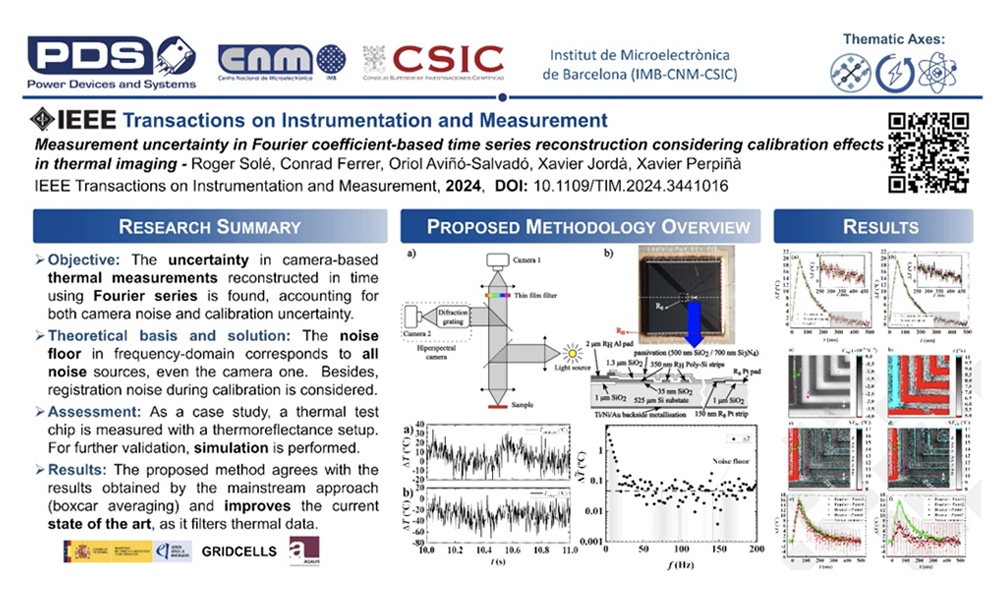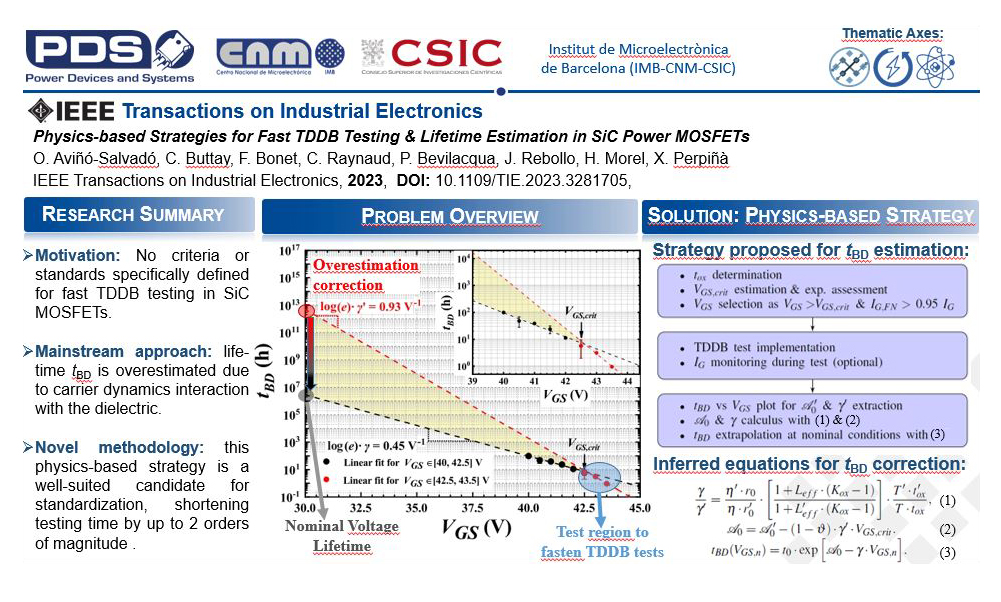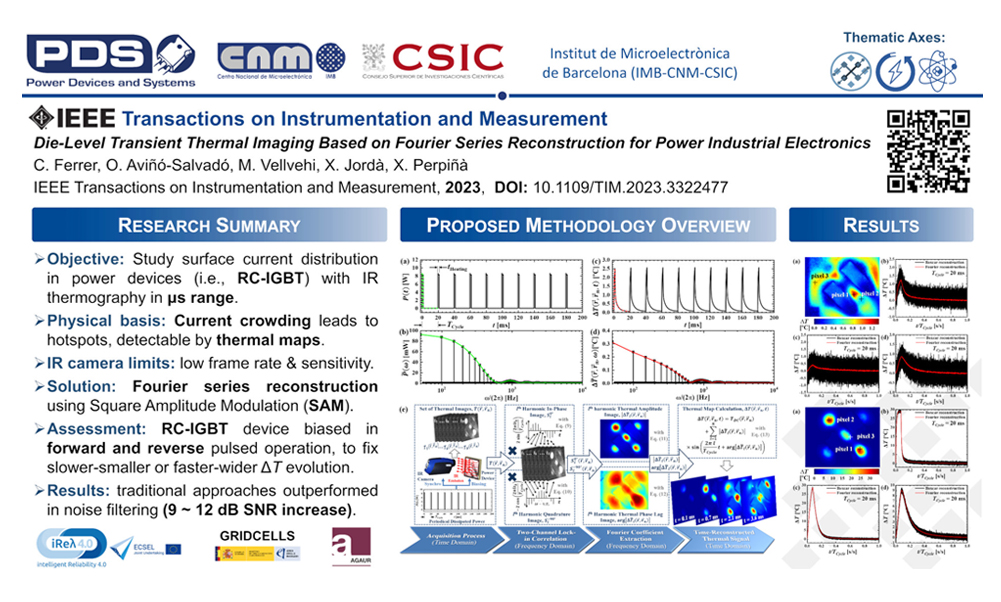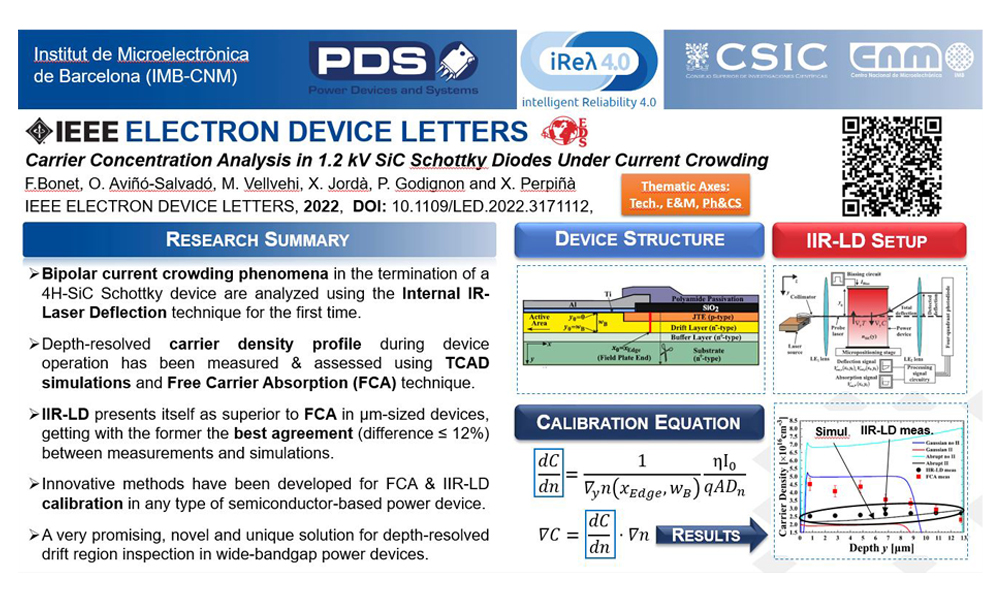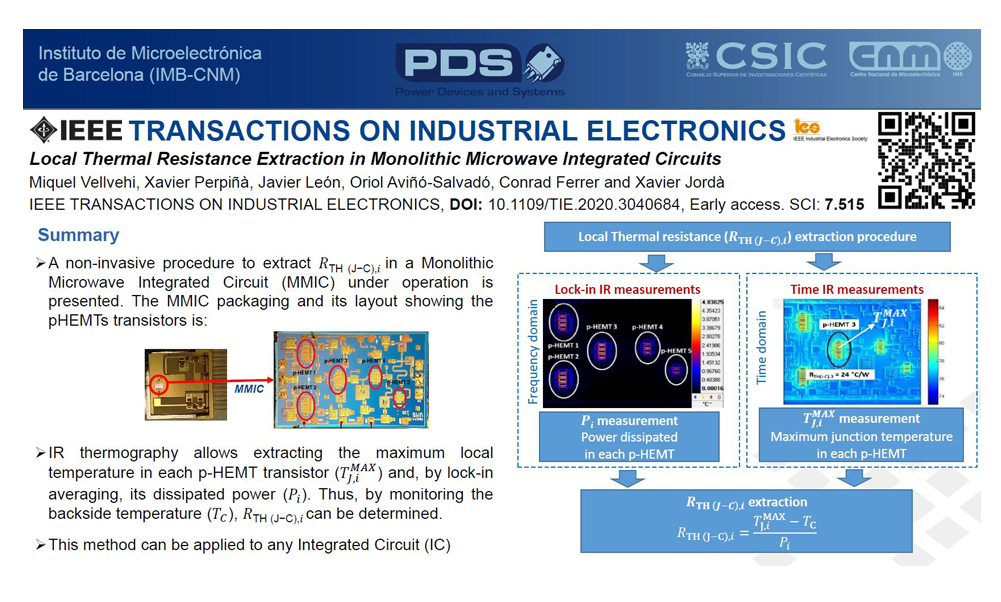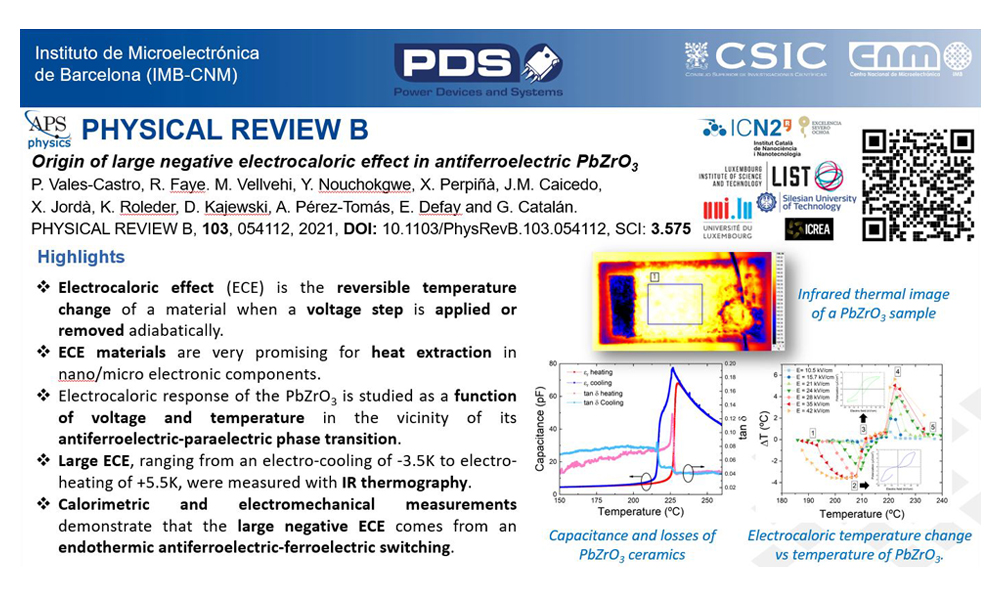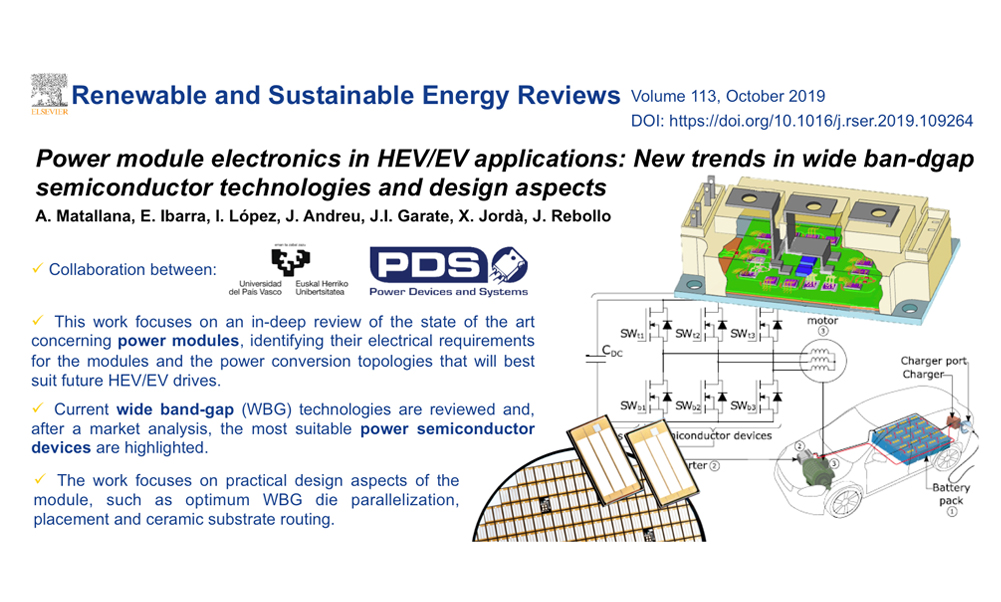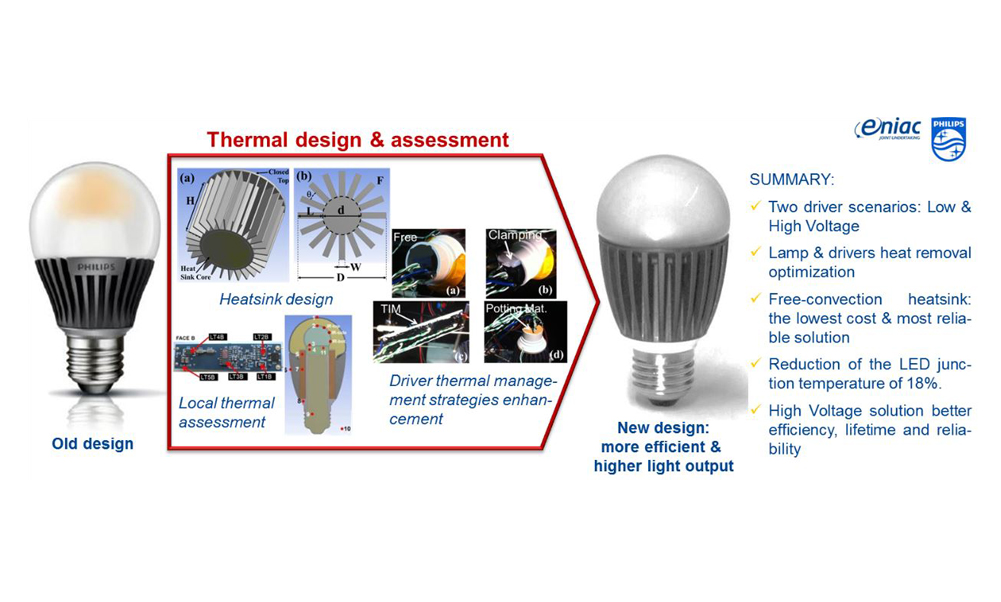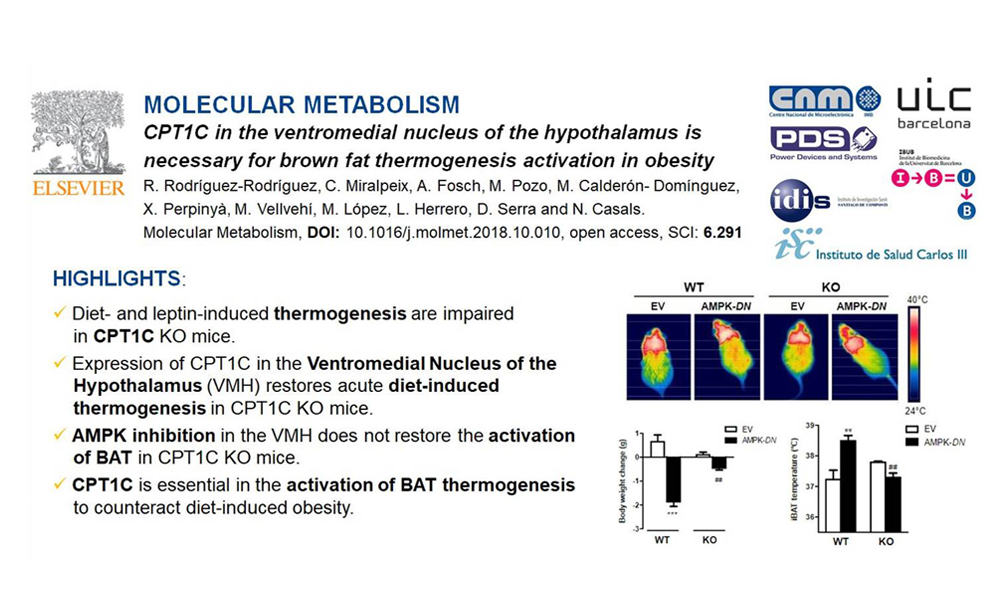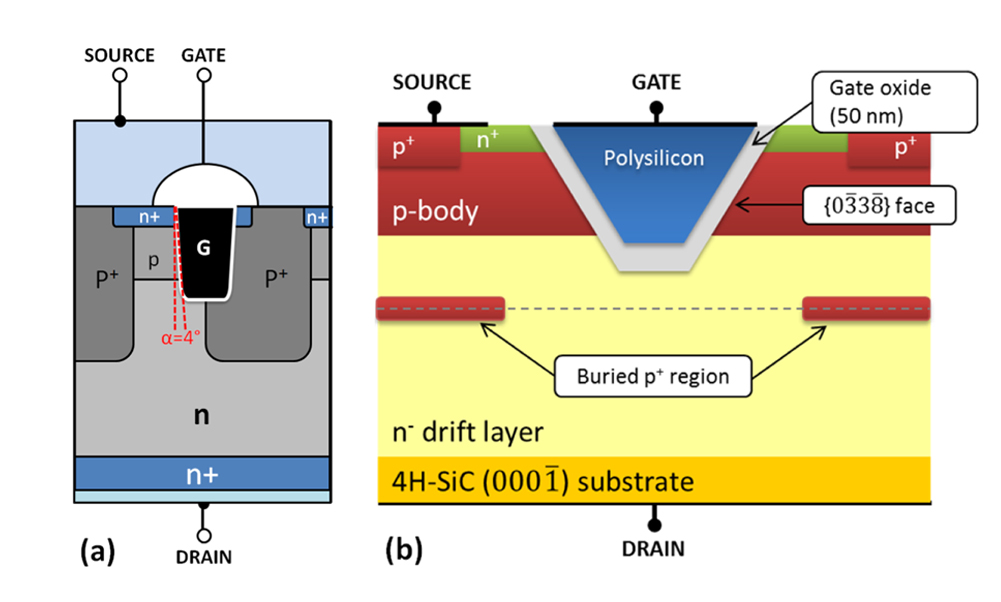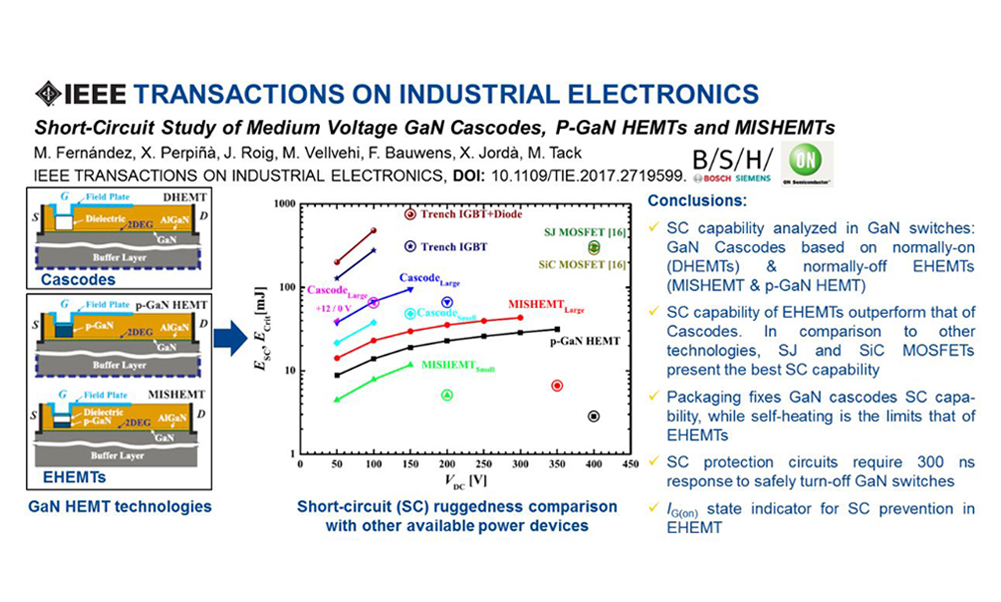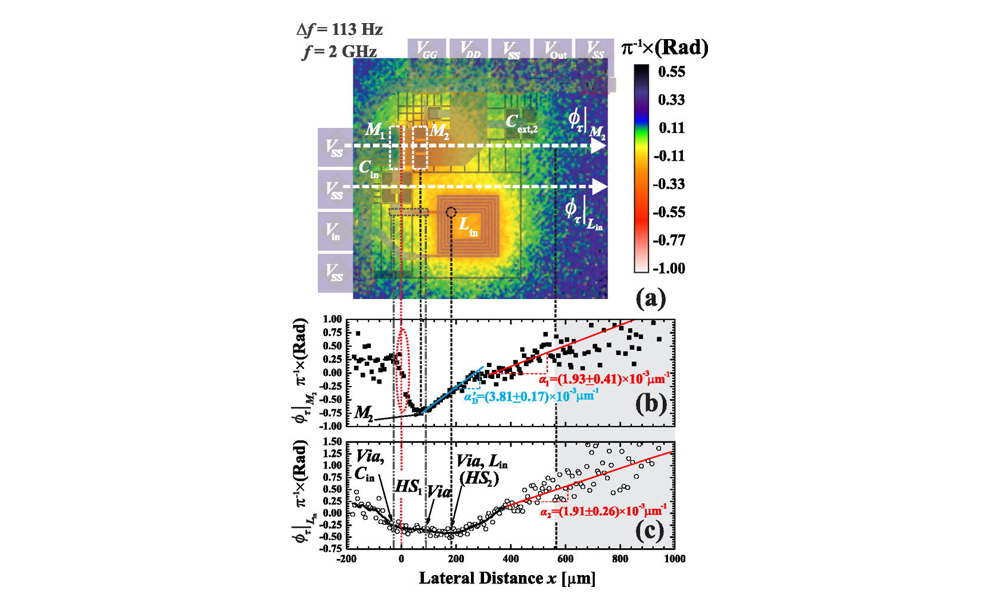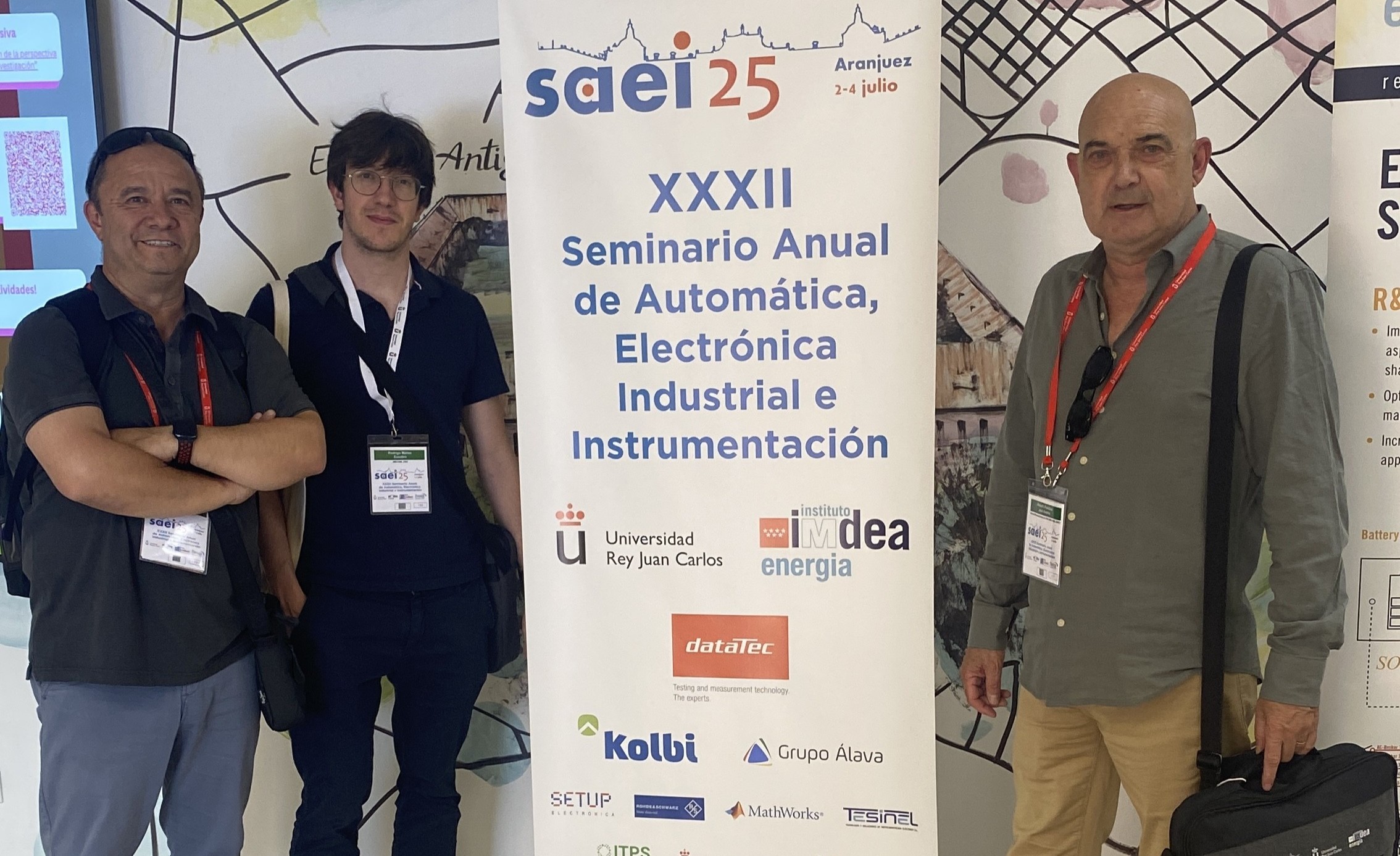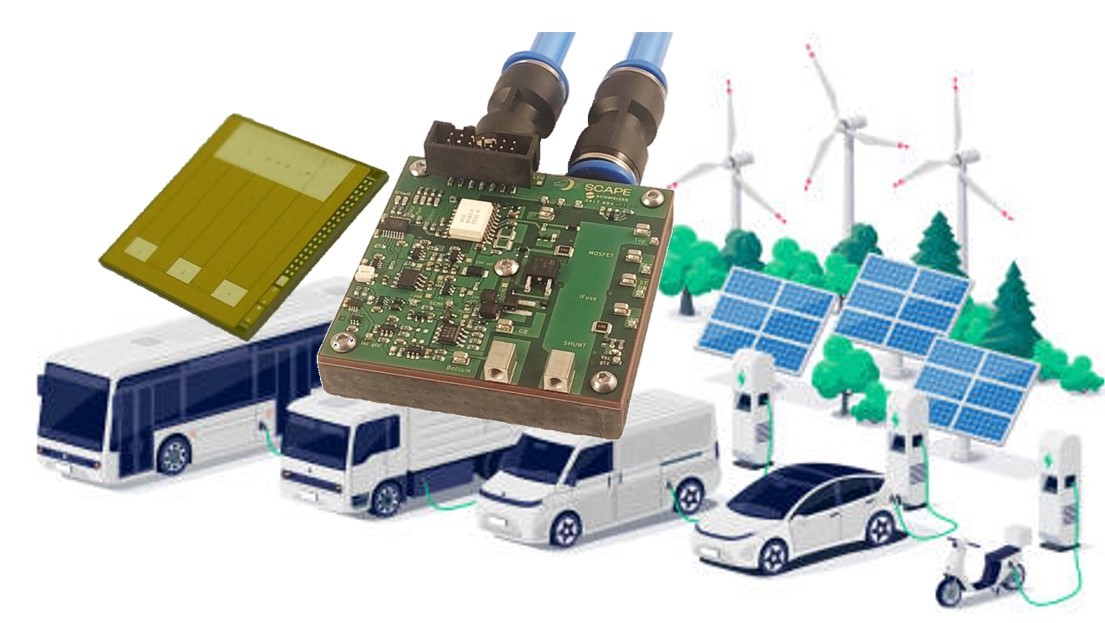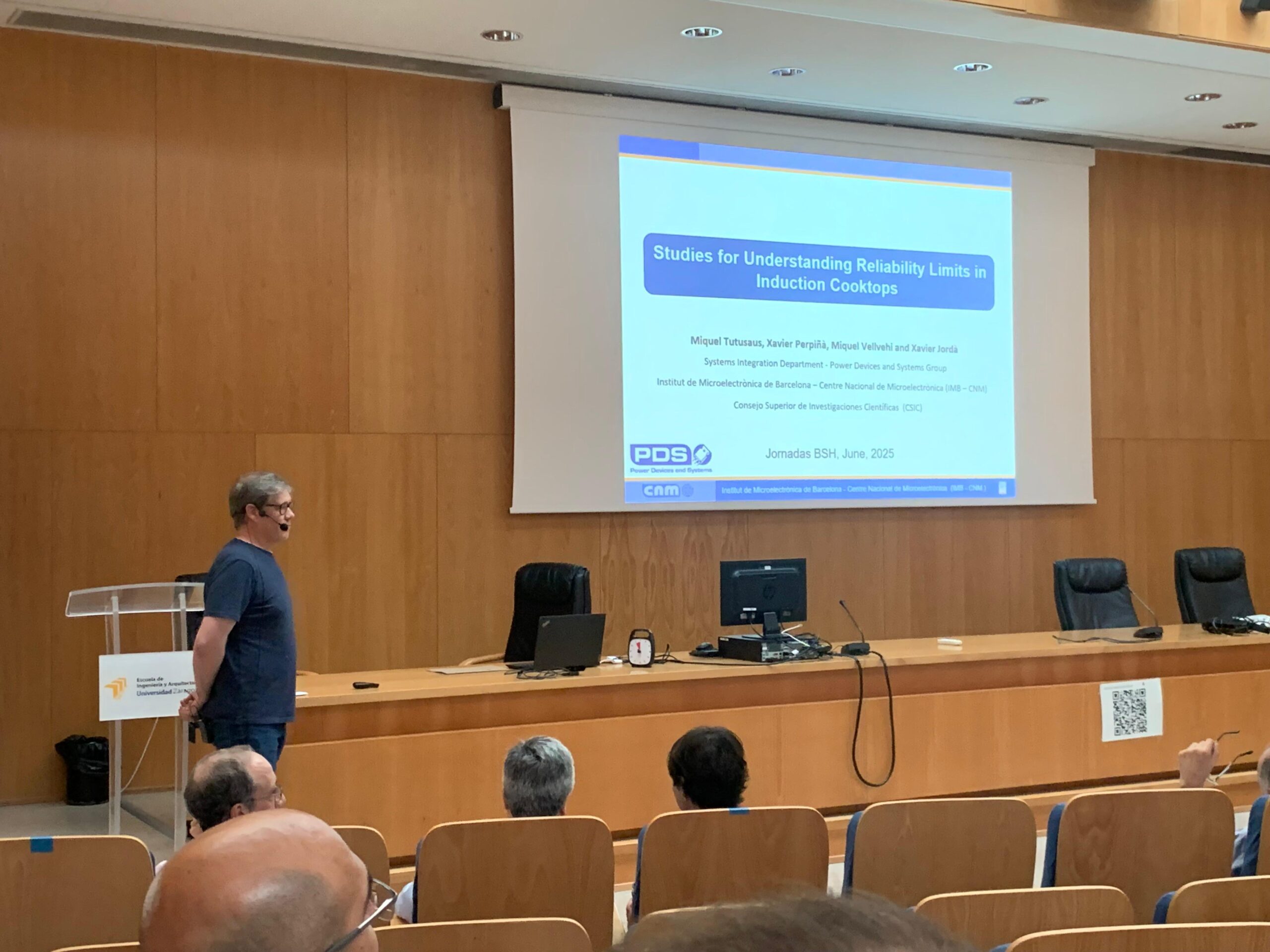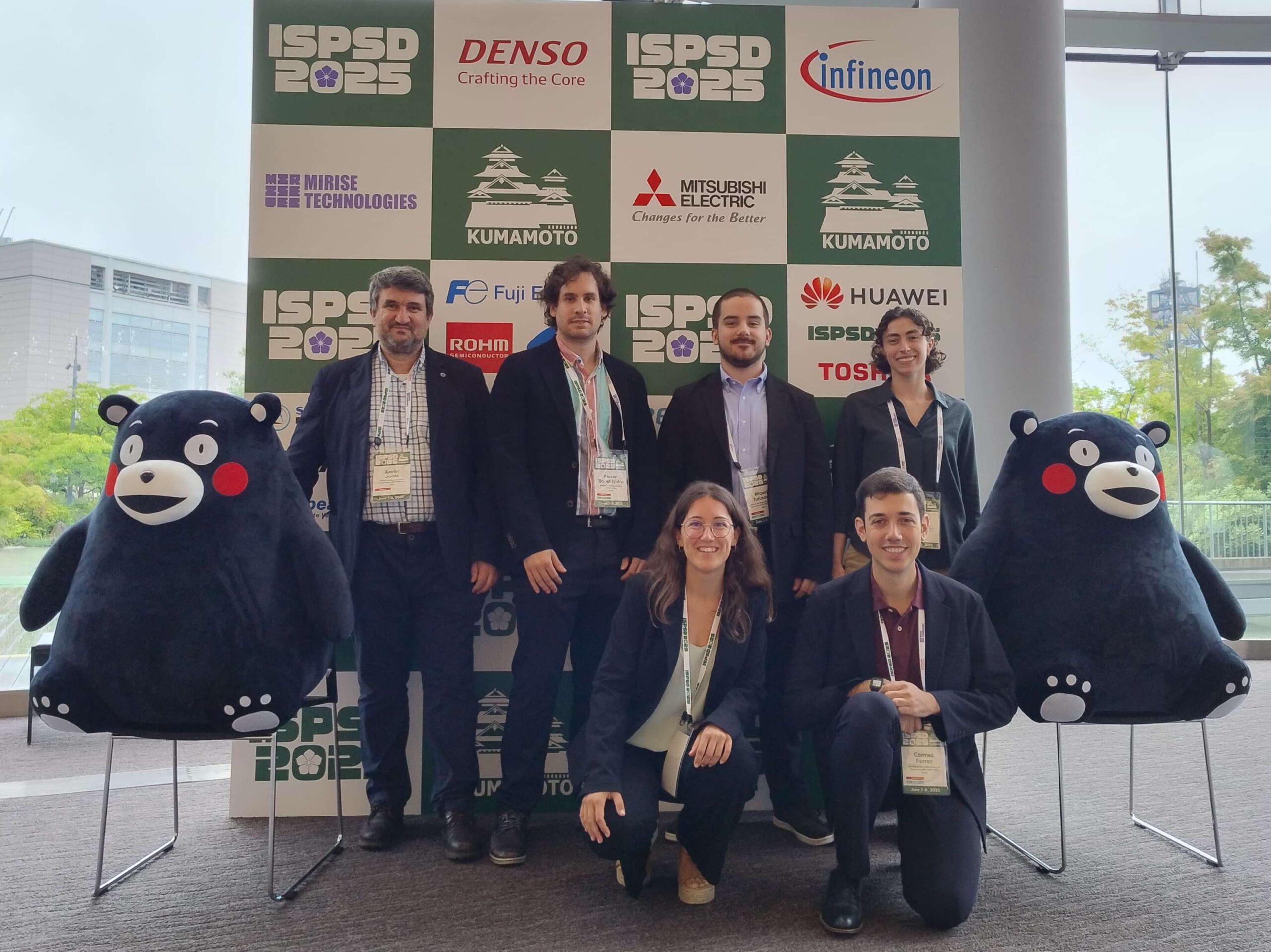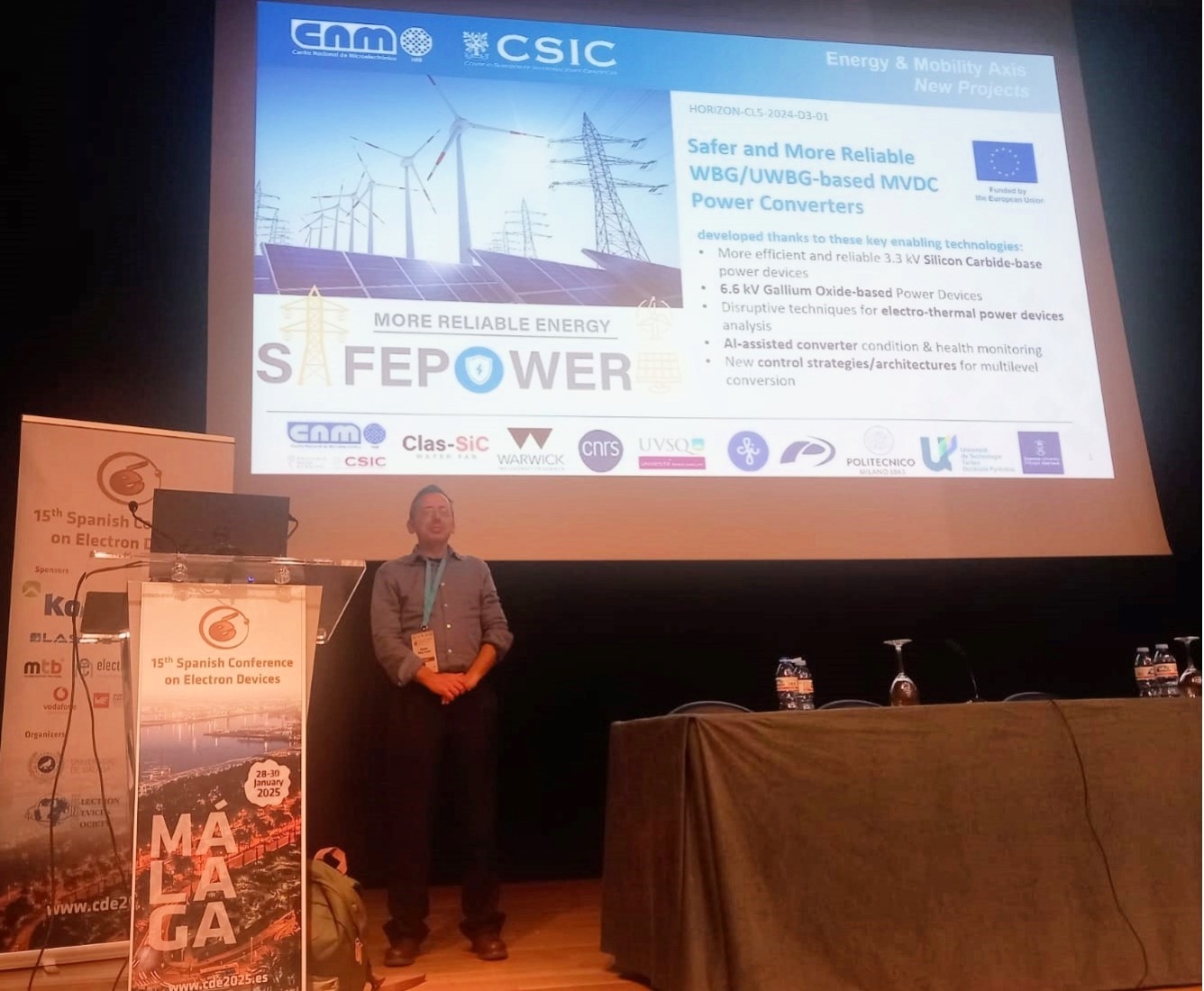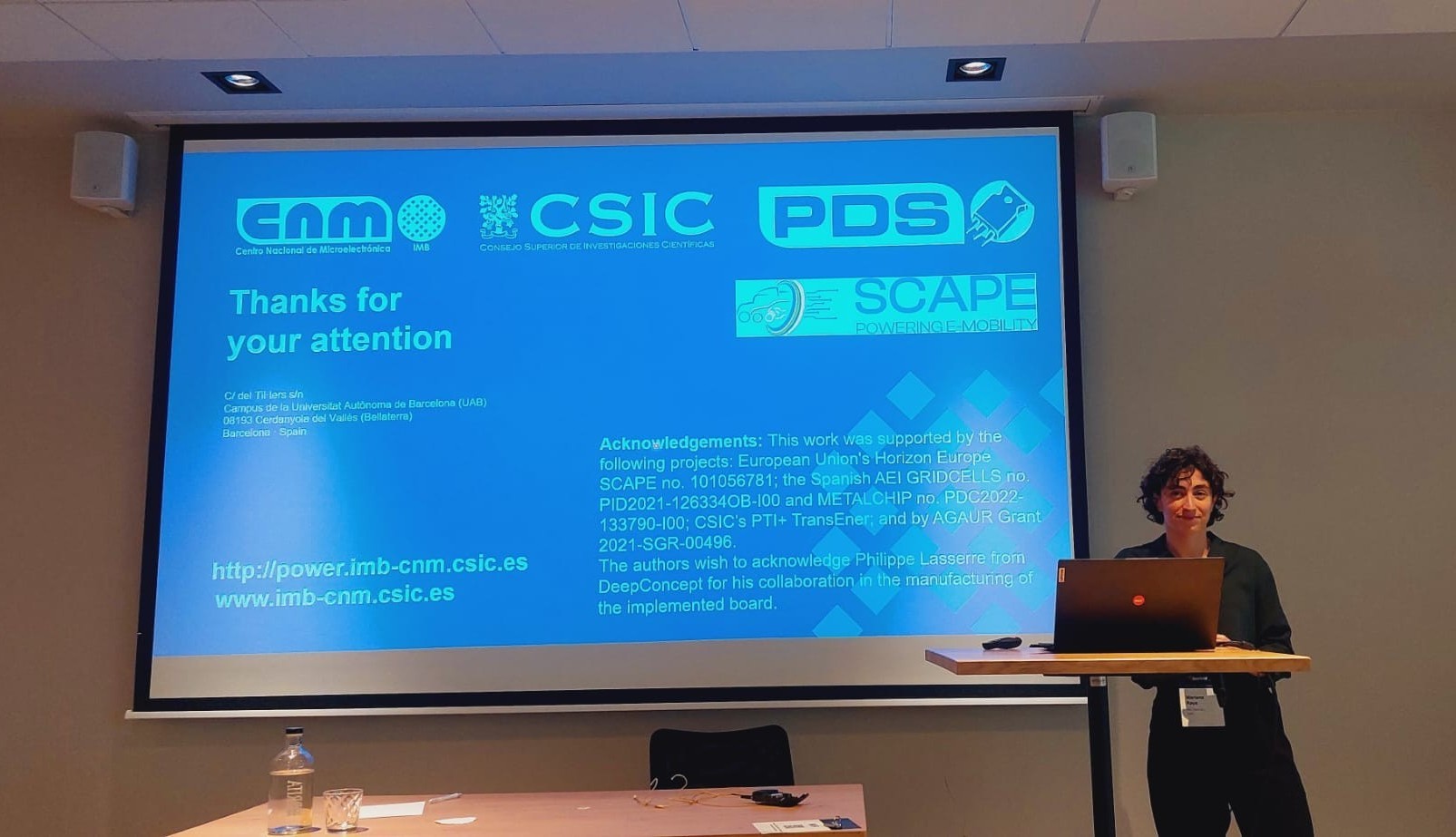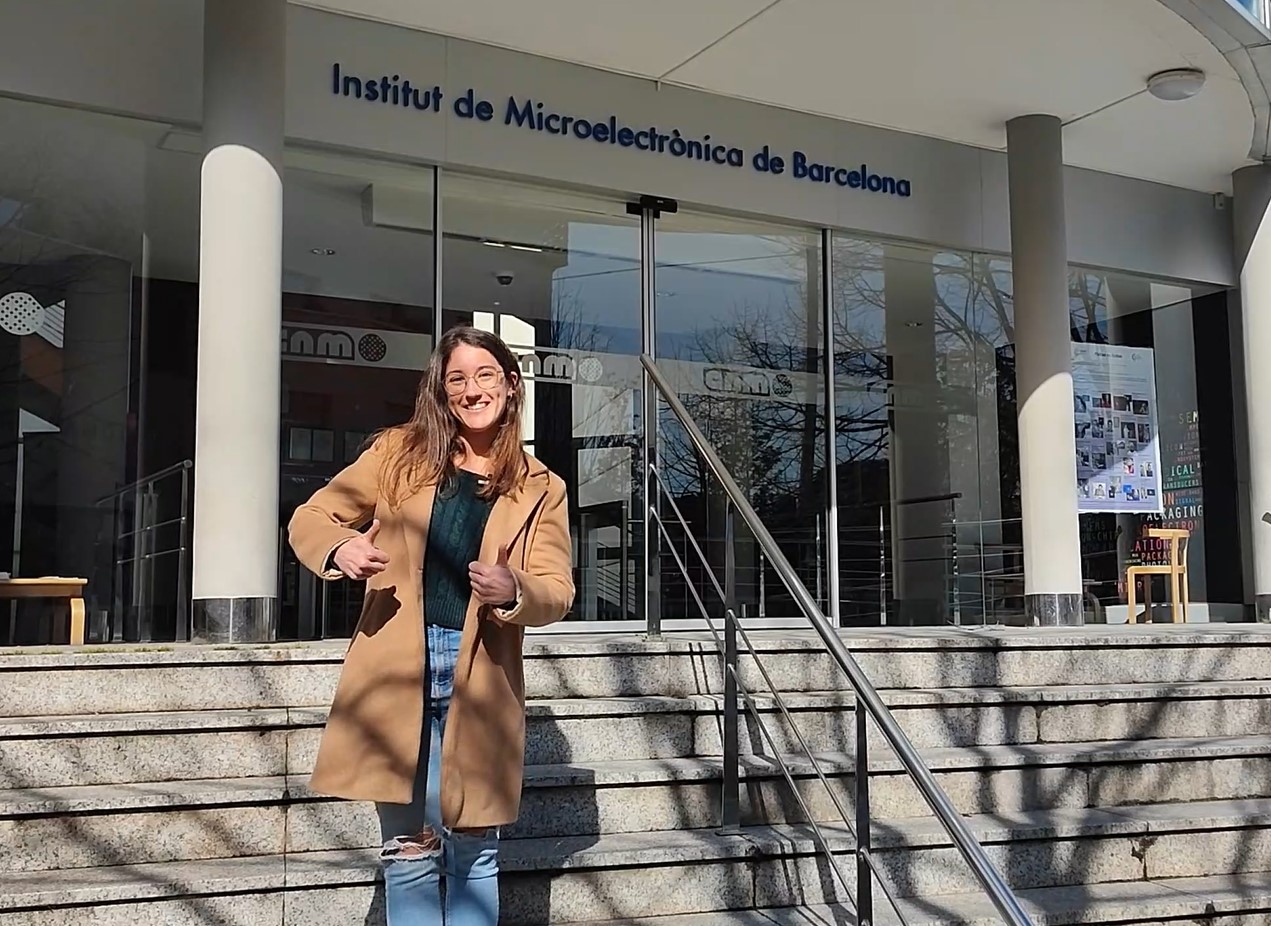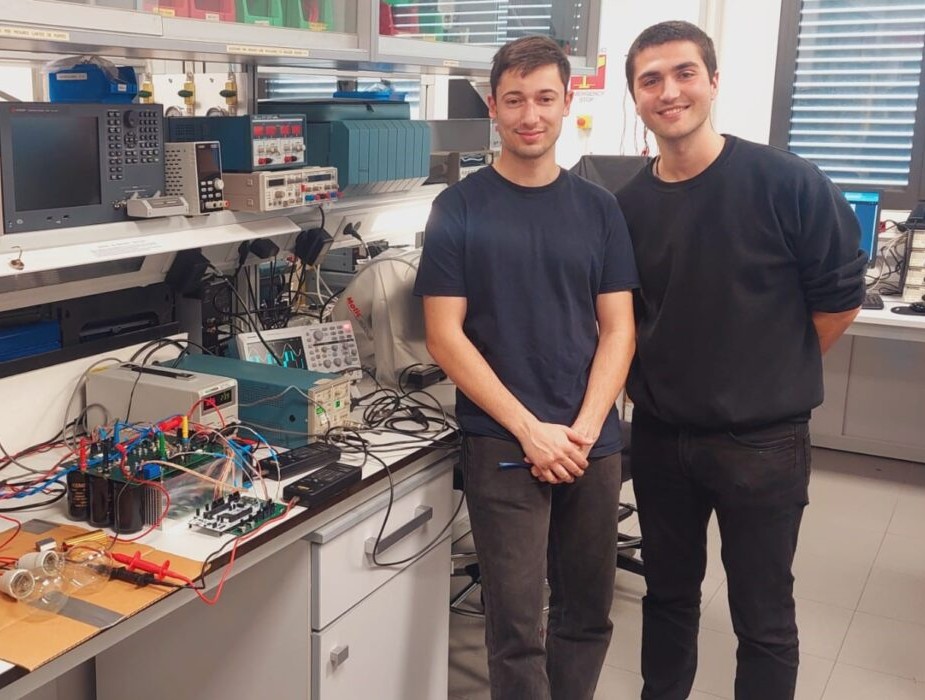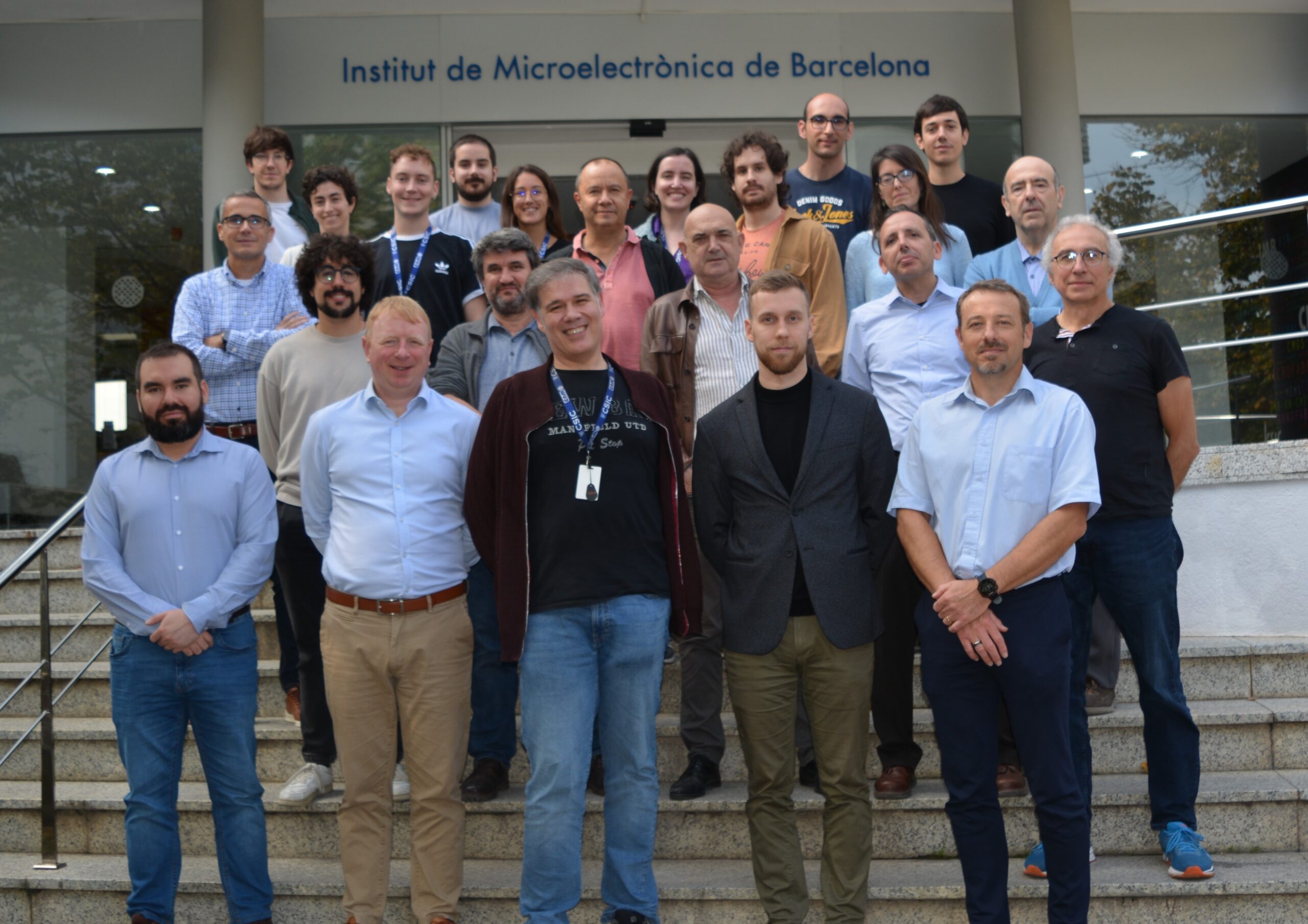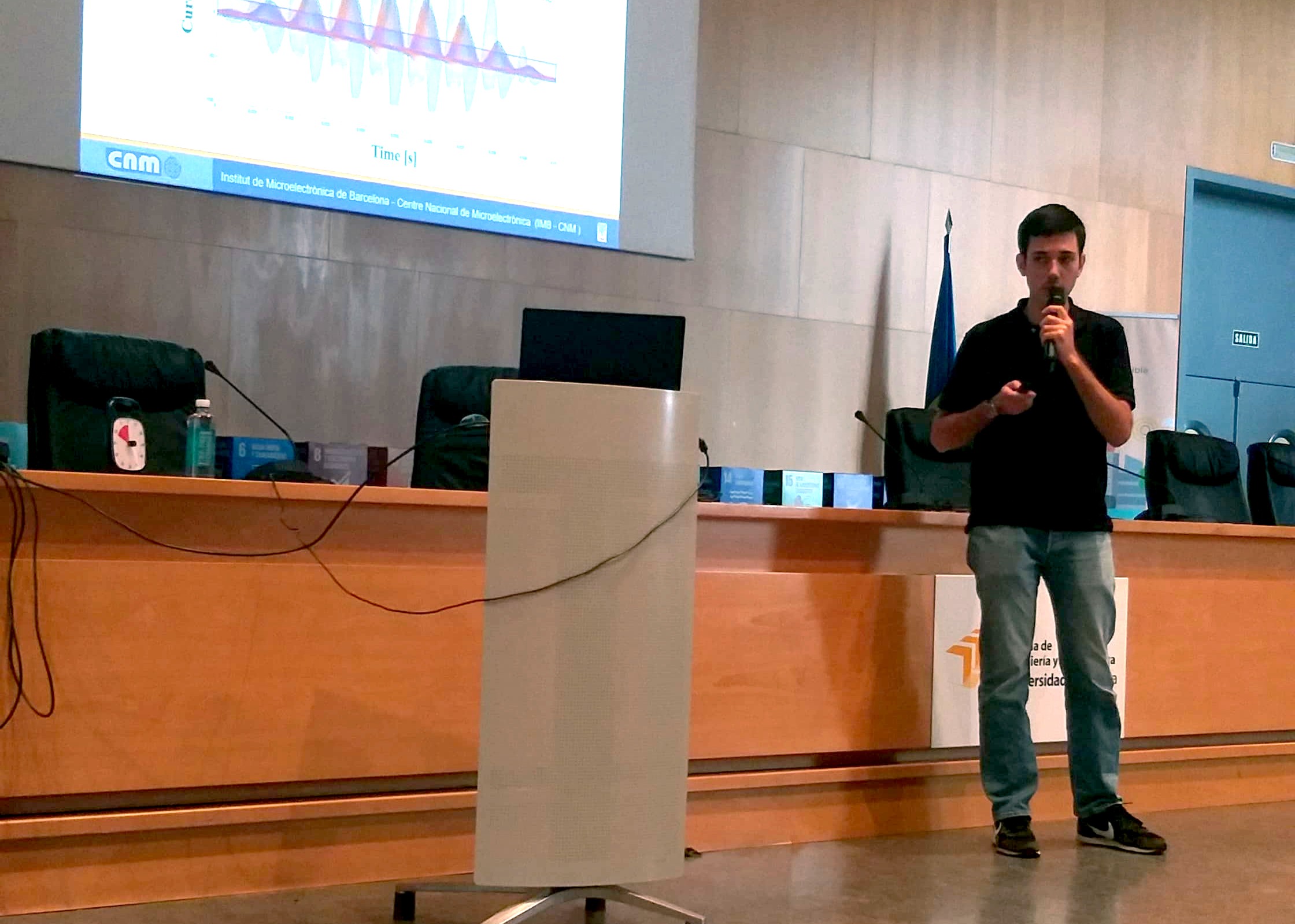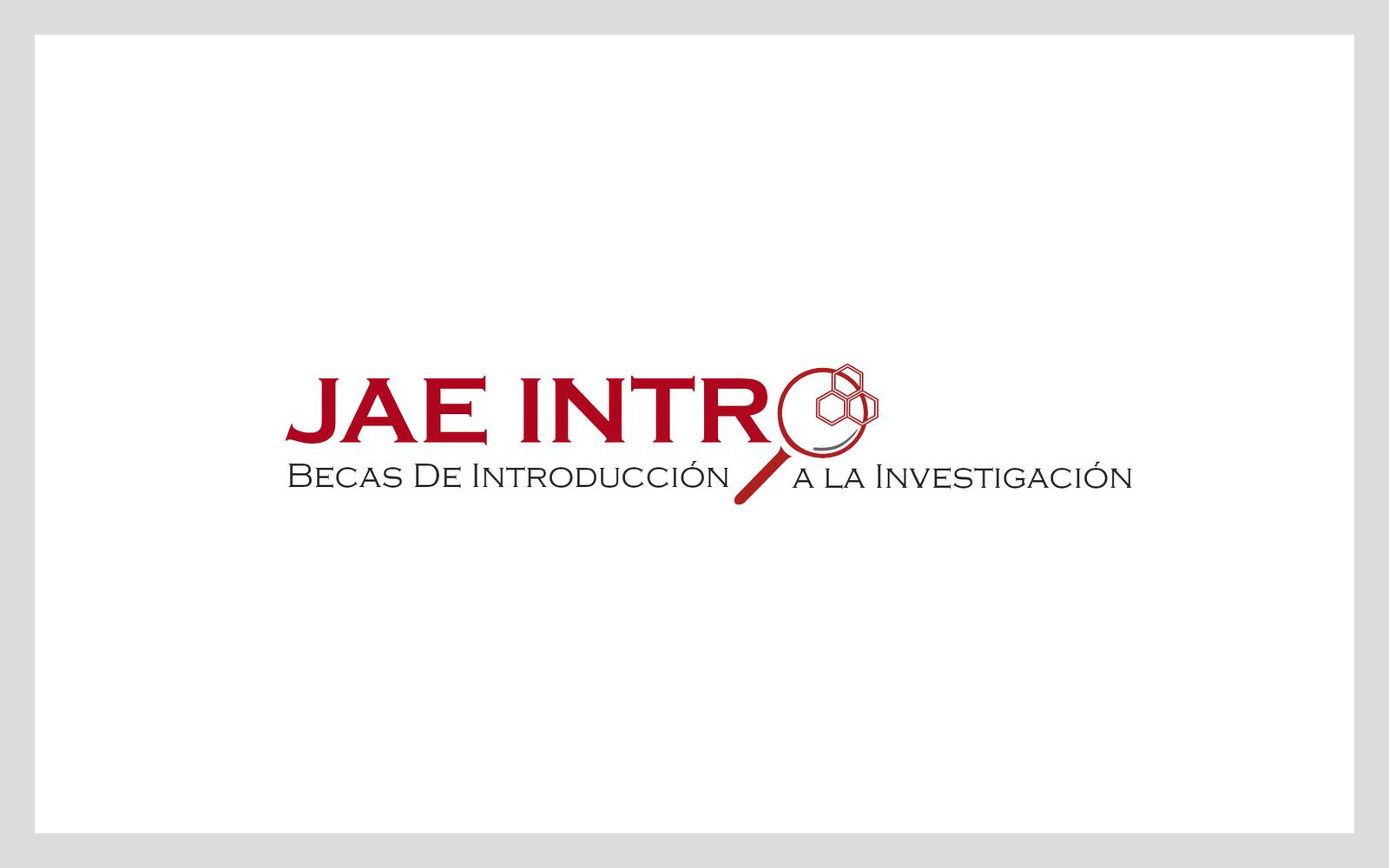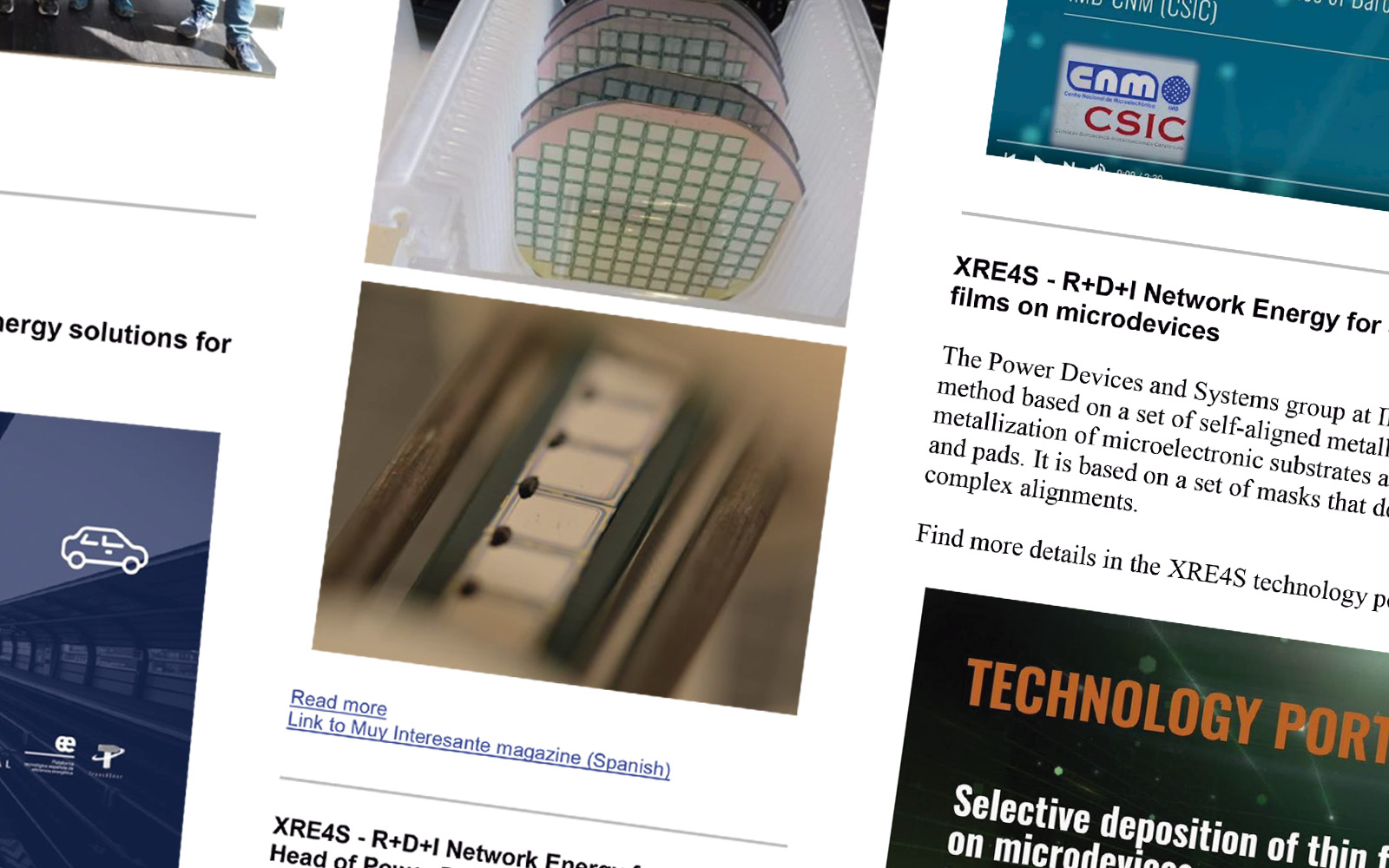Roger Solé, Conrad Ferrer, Oriol Aviñó-Salvadó, Xavier Jordà, Xavier Perpiñà. IEEE Transactions on Instrumentation and Measurement A robust methodology is proposed for determining and assessing measurement uncertainties in thermal imaging systems when the Fourier coefficient-based time-reconstructed method is used. This comprehensive approach addresses factors such as camera-induced noise, setup-related errors, and data postprocessing strategies. As […]
HOME
WELCOME TO
Power Devices and Systems Group
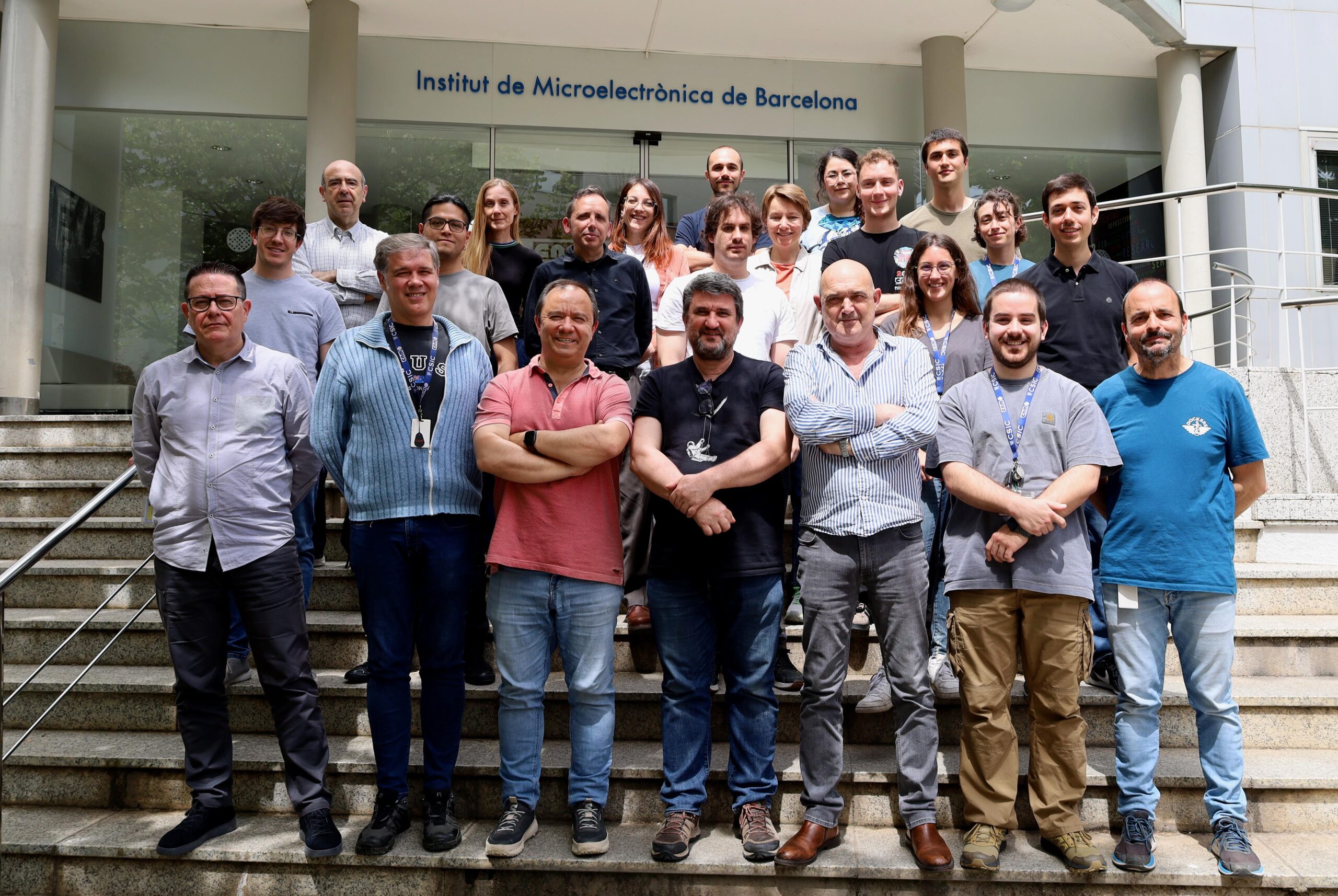
RECENT PUBLICATIONS
Physics-based Strategies for Fast TDDB Testing & Lifetime Estimation in SiC Power MOSFETs
O. Aviñó-Salvadó, C. Buttay, F. Bonet, C. Raynaud, P. Bevilacqua, J. Rebollo, H. Morel, X. Perpiñà IEEE Transactions on Industrial Electronics To expedite testing, Time-Dependent Dielectric Breakdown (TDDB) analyses are conducted on commercial 4H-SiC MOSFETs at high gate-to-source voltages, under Fowler-Nordheim conduction only. However, as inferred, such conditions induce impact ionization-generated holes in the dielectric […]
Die-Level Transient Thermal Imaging Based on Fourier Series Reconstruction for Power Industrial Electronics
Conrad Ferrer, Oriol Aviñó, Miquel Vellvehi, Xavier Jordà, Xavier Perpiñà IEEE Transactions on Instrumentation and Measurement A novel solution for off-chip electro-thermal studies in power devices at die level and short timescales is reported. The proposed method involves acquiring a sequence of thermal images on the top of the die with an infrared (IR) camera, […]
Carrier Concentration Analysis in 1.2 kV SiC Schottky Diodes Under Current Crowding
F. Bonet , O. Aviñó-Salvadó , Member, IEEE, M. Vellvehi , X. Jordà , P. Godignon , and X. Perpiñà IEEE Electron Device Letters Die-level current crowding phenomena are analyzed at the microsecond timescale with an internal IR-Laser Deflection set-up. To this end, the 4H-SiC plasmaoptical coefficient for the refractive index is reported for the first time. […]
Local Thermal Resistance Extraction in Monolithic Microwave Integrated Circuits
M. Vellvehi, X. Perpiñà, J. León, O. Aviñó-Salvadó, C. Ferrer and X. Jordà IEEE Transactions on Industrial Electronics The thermal resistance of a High Electron Mobility Transistor (HEMT) forming part of a Monolithic Microwave Integrated Circuit (MMIC) is non-invasively extracted under real working conditions (electrical and thermal) by infrared thermal imaging. The HEMT thermal resistance considers […]
Origin of the Large Negative Electrocaloric Effect in Antiferroelectric PbZrO3
P. Vales-Castro, R. Faye, M.Vellvehi, Y.Nouchokgwe, X. Perpiñà, J.M.Caicedo, X. Jordà, K. Roleder, D. Kajewski, A. Perez-Tomas, E. Defay, G. Catalan Physical Review B We have studied the electrocaloric response of the archetypal antiferroelectric PbZrO3 as a function of voltage and temperature in the vicinity of its antiferroelectric-paraelectric phase transition. Large electrocaloric effects of opposite […]
Power module electronics in HEV/EV applications: New trends in wide ban-dgap semiconductor technologies and design aspects
A. Matallana, E. Ibarra, I. López, J. Andreu, J.I. Garate, X. Jordà, J. Rebollo Renewable and Sustainable Energy Reviews A large number of factors such as the increasingly stringent pollutant emission policies, fossil fuel scarcity and their price volatility have increased the interest towards the partial or total electrification of current vehicular technologies. These transition […]
Thermal Management Strategies for Low and High Voltage Retrofit LED Lamp Drivers
X. Perpiñà, M. Vellvehi, R. J. Werkhoven,, J. Jakovenko, J. M. G. Kunen, P. Bancken, P. J. Bolt and X. Jordà IEEE Transactions on Power Electronics, early acces. Several thermal management strategies for LED drivers designed for high lumen retrofit LED lamps are studied by simulation and experimentation means. Depending on the driver output, two […]
CPT1C in the ventromedial nucleus of the hypothalamus is necessary for brown fat thermogenesis activation in obesity
R. Rodríguez-Rodríguez, C. Miralpeix, A. Fosch, M. Pozo, M. Calderón-Domínguez, X. Perpinyà, M. Vellvehí, M. López, L. Herrero, D. Serra and N. Casals. Molecular Metabolism Link DOI: doi.org/10.1016/j.molmet.2018.10.010 Objective: Carnitine palmitoyltransferase 1C (CPT1C) is implicated in central regulation of energy homeostasis. Our aim was to investigate whether CPT1C in the ventromedial nucleus of the hypothalamus (VMH) […]
Advanced processing for mobility improvement in 4H-SiC MOSFETs: A review
M. Cabello, V. Soler, G. Rius, J. Montserrat, J. Rebollo and P. Godignon Materials Science in Semiconductor Processing (2017) This paper reviews advanced gate dielectric processes for SiC MOSFETs. The poor quality of the SiO2/SiC interface severely limits the value of the channel field-effect mobility, especially in 4H-SiC MOSFETs. Several strategies have been addressed to overcome this issue. Nitridation […]
Short-Circuit Study of Medium Voltage GaN Cascodes,
P-GaN HEMTs and MISHEMTs
M. Fernández, X. Perpiñá, J. Roig, M. Vellveh, F. Bauwens, M. tack and X. Jordà. IEEE Transactions on Industrial Electronics, 64 (11), pp. 9012-9022 (2017) This paper studies by experimentation and physics-based simulation the Short-Circuit (SC) capability of several normally-off 600-650 V Gallium Nitride High-Electron-Mobility Transistors (GaN HEMTs): cascodes, p-GaN, and GaN Metal-Insulator-Semiconductor HEMTs (MISHEMTs). […]
Thermal phase lag heterodyne infrared imaging for current tracking in radio frequency integrated circuits
X. Perpiñà, J. León, J. Altet, M. Vellvehi, F. Reverter, E. Barajas, and X. Jordà Applied Physic Letters, 110, 094101 (2017) With thermal phase lag measurements, current paths are tracked in a Class A radio frequency (RF) power amplifier at 2 GHz. The amplifier is heterodynally driven at 440MHz and 2 GHz, and its resulting thermal field […]
NEWS AND EVENTS
Master’s Thesis Defense on Gallium Oxide Power Devices at PDS Group
On October 6th, Fernando Pierre Gallarday Peve, PhD student at the Power Devices and Systems (PDS) group of IMB-CNM, presented his Master’s Thesis as part of the SAFEPOWER project. His work focused on the development of high-performance lateral power devices based on gallium oxide (Ga₂O₃), one of the most promising emerging semiconductor materials for next-generation […]
PDS Group presents advances in Ga₂O₃ technology at IWUMD2025
From September 22 to 24, members of the PDS Group — Amador Pérez-Tomás, Pierre Gallarday, and Aniol Vellvehi — took part in the 8th International Workshop on Ultra-Wide Bandgap Materials and Devices (IWUMD2025), held in Wroclaw, Poland. Amador Pérez-Tomás presented the work “Tuning Silicon Implantation for α-Ga₂O₃ and β-Ga₂O₃ MESFET Transistors”, which focuses on […]
PDS Group Contributes to the SAAEI 2025 Seminar
From 2 to 4 July, PDS Group members Eusebio Rodrigo, Miquel Vellvehi, and José Rebollo participated in the XXXII Seminario Anual de Automática, Electrónica Industrial e Instrumentación (SAAEI 2025), held in Aranjuez, Spain. Eusebio Rodrigo presented a contribution entitled “Simulation of SEB-Resistant VDMOS Transistors”. This study explores the implementation of a buffer layer in […]
Power semiconductor devices: the unknown muscles of microelectronics
Within the cycle “Dilluns de Ciència. Projectes de recerca per a millorar la nostra societat” (“Science Mondays. Research projects to improve our society”) organized by the “Residència d’Investigadors” and CSIC, Dr. Xavier Jordà from the PDS Group gave the talk entitled “Els dispositius semiconductors de potència: els músculs desconeguts de la microelectrònica” (“Power semiconductor […]
Jornada de Grupos de Investigación BSH
Xavier Perpiñà from the PDS Group participated in the XX Jornada de Grupos de Investigación BSH on 04/06/2025, which took place at Campus Río Ebro in Zaragoza. During the event, Dr. Perpiñà presented the latest research results obtained in the framework of the PDS-BSH collaboration, focused on the studies for understanding reliability limits in […]
Highlighting IMB-CNM’s role in the 37th IEEE International Symposium on Power Semiconductor Devices and ICs
For the first time, researchers from the Power Devices and Systems Group (PDS) of IMB-CNM presented five contributions in the leading international conference on power semiconductor devices, the 37th IEEE International Symposium on Integrated Circuits and Power Semiconductor Devices (ISPSD). The event was held from June 1 to 5 in Kumamoto, Japan, and brought together […]
Invited Talk by Dr. Amador Pérez-Tomás at the CDE 2025 Conference
Dr. Amador Pérez-Tomás, member of the PDS Group and workpage leader of the Safepower Project, participated as an invited speaker at the Spanish Conference on Electron Devices (CDE 2025), held in Málaga on January 28–29. In his talk, titled Wide and Ultrawide Bandgap Semiconductors: There Also is Plenty of Room at the Wide Side, Dr. […]
Participation in the 26th International Conference on Thermal, Mechanical and Multi-PhysicsSimulation and Experiments in Microelectronics and Microsystems, EuroSimE 2025
On April 8, Mariana Raya, a PhD studet of the PDS Group, participated in the 26th edition of the International Conference on Thermal, Mechanical and Multi-Physics Simulation and Experiments in Microelectronics and Microsystems (EuroSimE), held in Utrech, The Netherlands. Mariana presented the contribution entitled “Analysis of the Magnetic Fields Only Currents (MFCO) COMSOL interface for […]
Yo investigo, yo soy CSIC: conectando chips. Emma Solà
Power converters are key to the energy transition, and their main component is the power module. Emma Solà is a predoctoral researcher in PDS group, and the focus of her thesis is on improving the connections of the devices within the modules, in order to enhance their efficiency and reliability. She is studying the behaviour […]
Two new BsC projects
On January 30, 2025, Adrià Aroca and Pau Novoa passed their final BsC Project at “Escola d’Enginyeria de Barcelona Est” (EEBE) of the “Universitat Politècnica de Catalunya” (UPC). Adrià and Pau developed the power and control stages of a 300V – 30A two-level inverter intended for power devices analysis under true operation conditions. This job […]
Kick-off meeting of SAFEPOWER project
On October 24th and 25th, the SAFEPOWER (Safer and More Reliable WBG/UWBG-based MVDC Power Converters) project kick-off meeting took place at the Institute of Microelectronics of Barcelona.This Horizon Europe project is led and coordinated by the IMB-CNM through Dr. Xavier Perpinyà from PDS Group. This project will provide key digital, enabling and emerging technologies for […]
Jornada de Grupos de Investigación BSH
Xavier Perpiñà and Conrad Ferrer from the PDS Group participated in the XIX Jornada de Grupos de Investigación BSH on 04/09/2024, which took place at Campus Río Ebro in Zaragoza. During the event, Dr. Perpiñà and C. Ferrer presented the latest research results obtained in the framework of the PDS-BSH collaboration, focused on improving the […]
Members of PDS Group participate in the TWHM2024 congress
From August 26th to 29th, Xavier Perpiñà, Ferran Bonet, and Conrad Ferrer from the PDS Group attended the 15th Topical Workshop on Heterostructure Microelectronics (TWHM 2024) held in Sendai, Japan. They presented an invited paper titled “Die-Level Functional Off-Chip Characterization of Power Devices Using Optical Techniques” during the “Power2” session. Additionally, Xavier Perpiñà served as […]
International Day of Women in Engineering (#INWED24)
On the International Day of Women in Engineering (June 23), the Institute of Microelectronics of Barcelona highlighted the work of eight women engineers, seven of them researching in micro and nanotechnologies with applications in health, energy, environment, semiconductor manufacturing, or chip design; and one working in the field of Administration at the IMB-CNM. Among them, […]
Invited talk: Introduction to Advanced PCBs
In the framework of the SCAPE Project General Assembly, on June the 14th, Thomas Gottwald, CTO at Schweizer Electronic AG, presented the talk “Introduction to Advanced PCBs”. Mr. Gottwald made a very interesting review of the most advanced PCB tecnologies from Schweizer than can be used in modern power systems integration. Among them, he highlighted […]
Mid-term General Assembly of HE SCAPE project at IMB-CNM facilities
The Horizon Europe SCAPE project (Switching-cell-array-based power electronics conversion for future electric vehicles) held its mid-term meeting last 14-15 July at the IMB-CNM-CSIC facilities. In this meeting were presented the first results of the project concerning power systems integration, multi-level converter prototypes and control solutions. The participation of PDS Group focused on the investigation and […]
Participation in the European PhD School on Power Electronics, Electrical Machines, Energy Control and Power Systems (Gaeta, Italy)
PDS group members Miquel Tutusaus and Conrad Ferrer attended the European PhD School on Power Electronics, Electrical Machines, Energy Control and Power Systems, celebrated between 27 – 31 of May 2024 in the city of Gaeta, Italy, where they also presented their work at the poster session.
Participation of the PDS Group in the CIPS 2024 conference
Last 12 – 14 March the members of the PDS Group Mariana Raya, Emma Solà and Xavier Jordà, participated in the 13th edition of the International Conference on Integrated Power Electronics Systems, CIPS 2024, held in Düsseldorf, Germany. We presented the contribution entitled “Estimation of thermo-mechanical Anand model parameters of die-attach materials for power electronics […]
Invited IMB-CNM Talk: ePowered
RACING – the electric competition
ePowered RACING is a team of 19 engineering students specializing in Mechanical, Electronic, and Electrical disciplines who work at the Barcelona School of Engineering (EEBE-UPC). They are passionate about both motorcycling and engineering, and they compete in the MotoStudent International
Successful Scientific Workshop on Power Devices at the EFICIENCE Industrial Chair
The industrial chair EFICIENCE hosted the highly successful scientific workshop SMIPPE in Tarbes (France), organized by Prof. Paul-Étienne Vidal from ENIT Tarbes. The event gathered leading experts and researchers to discuss advancements in power devices and related technologies. A highlight of the workshop was the insightful guest lecture by Researcher of PDS Group Xavier Perpiñà, […]
PDS Group participation in the EMPS 2023 Symposium
November, 2023 Emma Solà and Xavier Jordà from PDS Group particiapted in the Electronic Materials & Packaging in Space (EMPS) symposium held at ESTEC (ESA) in Noordwijk, The Netherlands, from 21-23 November 2023. Emma Solà presented her work entitled: High-Temperature Aging Tests of Silver Sintering Materials used as Die-attach Layers. Previously, Emma and Xavier also […]
Nit Europea de la Recerca 2023
September-October, 2023 Xavier Perpinyà and Oriol Aviño from the Power Devices and Systems group, participated in the European Research Night 2023 initiative in series of presentations in high schools (X. Perpinyà) and in series of micro-talks (O. Aviñó).
Presentation of the ePR03 electric-powered bike from the ePowered Racing team
October 6, 2023 On October 6, 2023, the ePowered Racing team of the Escola d’Enginyeria de Barcelona Est (EEBE) presented his last electric-powered bike the EPR03. The Power Devices and Systems (PDS) group of IMB-CNM(CSIC), through its AIE D+T Microelectrònica has sponsored one more year the team, which will participate in the next MotoStudent contest […]
Jornadas de grupos de investigación BSH
Septembre 12, 2023 Several members of the PDS Group participated in a two-day activity with BSHE. Firstly, a training course was held on 06/09/2023 at BSHE headquarters in Montañana (top photo). This course covered theoretical aspects of induction cooktops and included a visit to the manufacturing line. Secondly, they attended the XVIII Jornada de Grupos […]
PDS participates in the 1rst SCAPE Project Workshop: Modular and Scalable EV Power Converter Design. Unlocking a future of reliable, lightweight, and affordable EVs?
July 19, 2023 The first Workshop organised by the EU-funded Horizon Europe SCAPE Project (“Switching-Cell-Array-based Power Electronics conversion for future electric vehicles”) took place on July 19th, 2023. The workshop was part of the International Conference on Electrical and Electronic Technologies for Automotive (AEIT 2023) held at at the University of Modena Reggio Emilia (UNIMORE, Italy). The […]
Master Thesis Defense
July 13, 2023 Miquel Tutusaus from PDS Group defensed his Master Thesis in Electronic Engineering (MEE) at UPC with his work entitled Design of a test methodology for the analysis of derating rules in space power devices, obtaining the maximum qualificaction. Congratulations!!!
Self-powered smart power modules
May 26th, 2023 The importance of power electronics is rapidly increasing in today’s world, primarily driven by the growing need for electrification in order to eliminate fossil fuels consumption. Power converters are responsible for the processing and control of electric energy, ensuring efficient management of high amounts of electrical power. Power converters primarily consist of power […]
Industrial electrification and
decarbonization in 2050
May 15th, 2023 Within the cycle “Climate warming: Energy solutions from today for tomorrow” organized by the “Residencia d’Investigadors”, the CSIC and the “Fundació Catalana per la Recerca i la Innovació”, Dr. Xavier Jordà from the PDS Group gave the talk entitled “Industrial electrification and decarbonization in 2050”. The electrification of industrial processes can be a valuable tool […]
New Packaging Materials and Structures for Advanced Power Modules
April 28th, 2023 Have you noticed that the number of electric vehicles has raised exponentially in recent years? The society is becoming more aware about how important is to reduce carbon emissions and greenhouse gases. That is why there is a clear tendency in electrifying all the systems that used to work with fossil fuels; since […]
Job offers
Power Devices and Systems Group (PDS) offers 1 JAE-INTRO scholarship for introduction to research: Dates: From April 15th to May 15th, 2023 More info: https://jaeintro.csic.es/en/
iRel40 project: WP5 Workshop
March 29-30, 2023 In March 2023, the WP5 workshop of the iRel40 project took place at Technical University of Delft (The Netherlands). Oriol Aviñó from PDS Group participed in the event presenting the last results of the IMB-CNM activities and chairing one of the sessions. At the bottom picture, Oriol Avinó together with the responsibles of the […]
Talk: Microelectronics in space: BepiColombo mission
March 9, 2023 Miquel Vellvehi from PDS Group gave a talk in the framework of Objectes de la Recerca initiative at CSIC Delegation in Barcelona, which includes a mini-exhibition, a talk, a video and a contest. Vellvehi talked about the BepiColombo space mission, a joint ESA and JAXA mission, and diodes Schottky, developed at the IMB-CNM. These […]
PTI-TRANSENER+ celebrates its First Scientific Days
March 1-2, 2023 The Interdisciplinary Thematic Platform PTI-TransEner+ (Sustainable Energy Transition) of the Spanish National Research Council (CSIC) held its First Scientific Days on March 1 and 2 in Madrid, where the latest milestones achieved to date were presented, as well as the impact of the results and their transfer to the business community and […]
Master Thesis Defenses
February 9, 2023 Mariana Raya and Conrad Ferrer from PDS Group defensed their Master Thesis in Electronic Engineering (MEE) at UPC with their works entitled Study of self-powered gate driver power supply solutions and Infrared image processing strategies for die-level power devices inspection, respectively, obtaining the maximum qualificaction. Congratulations!!!
First IMB-CNM Innovation Day
November 23, 2022 The PDS group participated in the First IMB-CNM Innovation Day held at Hotel Exe Campus on November 23. Miquel Vellvehi and Xavier Perpiñà were two of the coordinators of the stands showing the institute research results on two of their thematic axes: Energy and Mobility and Physics Frontiers and Civil Security. Dr. Fernando Monterde, […]
Participation in the IV Innovation Meeting
On November 16, 2022, Dr. X. Jordà from the PDS Group and representing also the CSIC PTI+ TransEner, participated at the IV Innovation Meeting entitled “The energy transition in Catalonia and Switzerland – Models, best practices and ideas for cooperation” that took place at the Palau de Pedralbes in Barcelona. This event was co-organised by […]
PDS Group participates in the Physics of Failure Workshop within iRel40 project
Dr. Xavier Perpinyà participated in the Physics of Failure Workshop during the General Assembly of the iRel40 project held in Ljubljana (Slovenia) from Novembre 7th to 10th. Dr. Perpinyà, Principal Investigator of iRel40 project, presented his work entitled “PoF in power devices under overcurrent testing/ageing for induction cooktops”.
The UPC ePowered RACING MotoStudent team participates at the 1st edition of the
e-Mobility Experience Fair at the Circuit de Barcelona-Catalunya
October 29-30, 2022 The ePowered RACING team participated in the e-Mobility Experience Fair held this past weekend at the Circuit de Barcelona-Catalunya Paddock. The team, formed by students from the Escola d’Enginyeria de Barcelona Est (EEBE) of the UPC has the sponsorship of the IMB-CNM through the Power Devices and Systems (PDS) Group and D+T […]
PDS Group participation at CAS’22 Conference: Emma Solà obtains the Best Student Paper Award
October, 12-14, 2022 Emma Solà from PDS Group has participated at the 45th edition of the annual conference (CAS 2022) held in Poiana Brasow (Romania) on October 12-14, 2022 with her work entitled “Silver Sintering as Die-Attach Material for High Temperature Sensors”. This paper received the CAS2022 Best Student Paper Award. Xavier Jordà also participated as an invited speaker with […]
Job offers
Power Devices and Systems Group (PDS) offers 2 JAE-INTRO scholarships for introduction to research: Dates: From October 5th to November 7th, 2022 More info: https://jaeintro.csic.es/
PDS Group participation at WiPDA-Europe 2022 Conference
September, 18-20, 2022 Oriol Aviñó-Salvadó from PDS Group has participated at the WiPDA – Europe Conference held in Warwick (United Kingdom) on September 18-20, 2022 with his work entitled “Dopant Incomplete Ionization Role in SiC Schottky Diode Edge Termination under Current Over-Stress”.
PDS Group participation at EPE’ 22 ECCE Europe Conference
September, 5-9, 2022 Mariana Raya from PDS Group has participated at the 24th European Conference on Power Electronics and Applications (EPE-ECCE) held in Hannover (Germany) on September 5-9, 2022 with her work entitled “Improvement of a self-powered gate driver power supply”.
Jornada de Grupos de Investigación BSH
September, 6, 2022 Dr. Xavier Perpinyà from PDS Group participated at the XVII Jornada de Grupos de Investigación BSH at Campus EINA in Zaragoza. Dr. Perpinyà presented the research activities carried out during the past year about the improvement of the induction cooktop reliability at die level.









